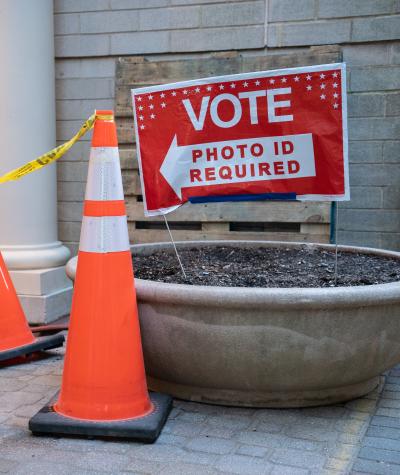Ohio may not be top of mind when thinking of states passing restrictive laws that threaten our freedom to vote. But earlier this year, a potentially sweeping prohibition on cooperation between election officials and community groups was tucked into the state’s budget, putting at risk the right of Ohio voters to ensure their voices are heard.
This law went into effect on Sept. 30, 2021 and threatens to undermine effective election administration and seriously hamper voter engagement activities.
The full implications of this new law are not yet clear, but the ambiguity surrounding its scope and enforcement is already having negative effects as election officials throughout the state interpret the law differently. As long as the law stands, statewide guidance regarding the law’s correct implementation is needed.
On Dec. 2, 2021, Campaign Legal Center (CLC) sent a letter to Ohio Attorney General Dave Yost on behalf of All Voting is Local, Ohio Voice and Common Cause Ohio urging him to issue a formal opinion interpreting the new law and providing guidance to election officials throughout Ohio so that they can plan for and successfully implement voter outreach and election activities with their community partners.
Coordination between community groups and election officials is essential to providing voters with accurate information and assistance when they are registering to vote and preparing to cast their ballot.
It is also extremely commonplace, with election officials and community groups partnering throughout the election cycle to provide pro-voter services like voter registration drives, voter education events and get-out-the-vote activities.
Without this type of coordination, voters are likely to receive conflicting information, with instructions on how and where to vote coming from too many disparate sources that are forbidden from communicating with one another.
In addition to these voter-facing initiatives, community groups also help election officials ensure successful and efficient election administration by assisting with things like poll worker recruitment efforts and circulation of election office job postings.
Cutting off these partnerships will place a significant burden on Ohio’s county boards of election and election officials while they continue to be underfunded, under-resourced and under constant attack.
This is not a partisan issue – all voters benefit from these coordinated initiatives. At a lunch with the Ohio League of Women Voters, Republican Secretary of State Frank LaRose described coordination with community groups as crucial to his office’s work registering voters, encouraging voter participation and recruiting election volunteers.
Election officials in blue, red and purple counties regularly work with outside organizations representing various ideologies to provide services to voters and effectively administer elections. As Secretary LaRose noted, such collaboration is “a basic competency” of an election official’s job.
Despite all this, Ohio’s new law threatens these voter education and outreach efforts that are reliant on coordination between state and local election officials and outside groups.
The end result of this restriction will be to limit election officials’ ability to ensure that voters receive accurate and up-to-date information on upcoming elections and opportunities to register and vote.
No matter our race, background or zip code most of us believe that for democracy to work for all of us, it must include us all. Throughout our history, we have fought to ensure more Americans have our right to vote honored and that we’re able to cast our vote and have it counted.
Coordination between election officials and community groups has long played an essential role in this fight.
The Ohio legislature must repeal or amend this law to ensure these crucial civic engagement activities can continue, and it should do so well in advance of the 2022 midterms so that voting is as accessible as possible for Ohioans.

